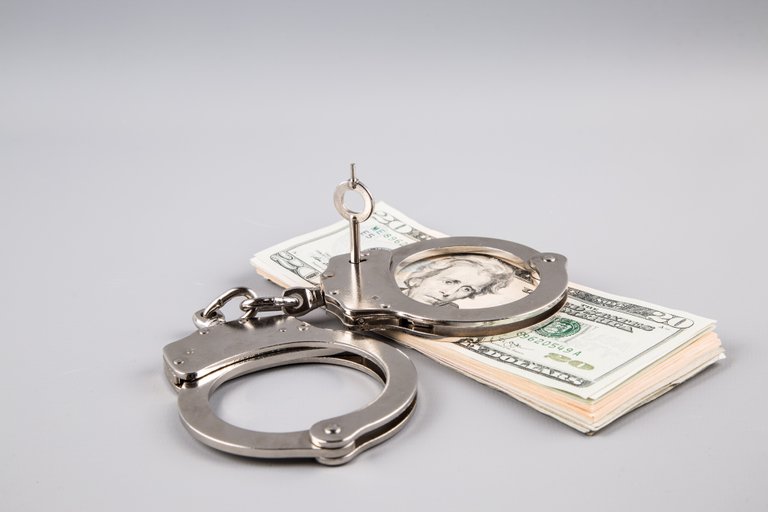
(www.publicdomainpictures.net/pictures/170000/velka/handcuffs-and-money.jpg)
With the excuse of prosecuting the drug war, law enforcement and the judicial system have been given tools that fall well outside the limitations of the United States Constitution. The Civil Asset Forfeiture Act allows law enforcement to seize the assets of individuals involved in illicit activity, specifically the drug trade. These powers have been expanded, however, to apply to ordinary citizens that are only suspected of criminal activity. Police officers need only suspect that an “unusual” amount of cash is intended to purchase drugs in order to seize that cash. There have been attempts at reform, though they have been ineffective. Civil forfeiture laws have evolved to not only punish criminals but to steal from law-abiding citizens as well. Mere suspicion is now cause for authorities to seize property.
“While the act was intended to subject the ill-gotten gains of drug cartel members to
forfeiture, its ultimate effect has been to subject the property of everyday citizens
to civil asset forfeiture. Such forfeiture can occur even when the property owners
themselves have not been involved in any illegal activity.” (Levesque, 2015, p.60).
These laws, originally meant to be narrow in scope, have become insidious and far reaching. In fact, once a person's property is seized, there is little recourse. Instead of going through the process of convicting someone of a criminal act before seizing property, prosecutors are now charging the property itself with the crime. This act of separating a person from their property in criminal cases has completely gutted the right to due process. And since property is not a person, it can obviously have no right to defense or habeas corpus. This property is often seized without a person ever being charged of a crime.
Furthermore, these forfeiture laws have actually created a financial incentive for police to violate Fourth Amendment rights, encouraging even more creative ways of avoiding Constitutional limitations. Depending on the jurisdiction, law enforcement agencies are allowed to keep most of the money and property seized in the form of contributions to anti-drug funds, filling shortfalls in budgets or even purchasing non-essential personal items. It has even become a common practice for law enforcement agencies to conduct illegal searches. To circumvent Constitutional restrictions against these illegal searches, common activities such as driving or standing on a corner can be viewed as suspicious activity, giving police probable cause for a search. In one example, Radley Balko (2014) cites New Mexico's drug courier profile, according to which speeding is considered suspected behavior of a drug courier. The same profile also describes strict adherence to traffic laws as suspicious. FOLLOWING THE LAW IS SUSPICIOUS ACTIVITY! This means that simply driving a vehicle in New Mexico may be construed as probable cause and gives police the authority to search a vehicle, no warrant required. Police activity such as this in the name of eradicating drugs is not only degrading civil rights but turns every American into a potential suspect, while sanctioning criminal behavior on the part of law enforcement. Followed out to its logical conclusion, one of the very pillars of our free society is being chipped away; the burden of proof is shifting to the citizen to prove their innocence rather than the state having to prove guilt.
Sources:
Levesque, J. (2015). Property rights---When reform is not enough: A look inside the problem created by the Civil Asset
Reform Act of 2000. Western New England Law Review, 37(1), 59-89.
Balko, R. (2014, March 31). The drug war exception to the Fourth Amendment The Washington Post retrieved from
https://www.washingtonpost.com/news/the-watch/wp/2014/03/31/the-drug-war-exception-to-the-fourth-amendment/